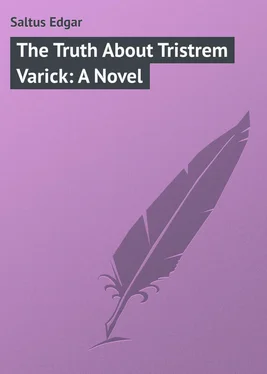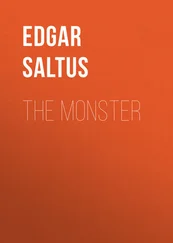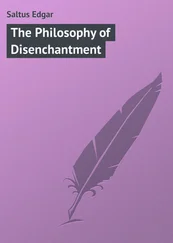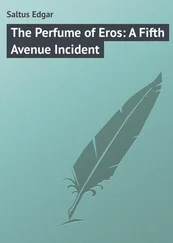Edgar Saltus - The Truth About Tristrem Varick - A Novel
Здесь есть возможность читать онлайн «Edgar Saltus - The Truth About Tristrem Varick - A Novel» — ознакомительный отрывок электронной книги совершенно бесплатно, а после прочтения отрывка купить полную версию. В некоторых случаях можно слушать аудио, скачать через торрент в формате fb2 и присутствует краткое содержание. Жанр: foreign_prose, на английском языке. Описание произведения, (предисловие) а так же отзывы посетителей доступны на портале библиотеки ЛибКат.
- Название:The Truth About Tristrem Varick: A Novel
- Автор:
- Жанр:
- Год:неизвестен
- ISBN:нет данных
- Рейтинг книги:4 / 5. Голосов: 1
-
Избранное:Добавить в избранное
- Отзывы:
-
Ваша оценка:
- 80
- 1
- 2
- 3
- 4
- 5
The Truth About Tristrem Varick: A Novel: краткое содержание, описание и аннотация
Предлагаем к чтению аннотацию, описание, краткое содержание или предисловие (зависит от того, что написал сам автор книги «The Truth About Tristrem Varick: A Novel»). Если вы не нашли необходимую информацию о книге — напишите в комментариях, мы постараемся отыскать её.
The Truth About Tristrem Varick: A Novel — читать онлайн ознакомительный отрывок
Ниже представлен текст книги, разбитый по страницам. Система сохранения места последней прочитанной страницы, позволяет с удобством читать онлайн бесплатно книгу «The Truth About Tristrem Varick: A Novel», без необходимости каждый раз заново искать на чём Вы остановились. Поставьте закладку, и сможете в любой момент перейти на страницу, на которой закончили чтение.
Интервал:
Закладка:
It was with this little store of information that Tristrem left her on the Thursday succeeding the dinner. It was meagre indeed, and yet ample enough to afford him food for reflection. During the gleaning many people had come and gone, but of Miss Raritan he had as yet seen nothing. The next afternoon, however, as he was about to ascend Mrs. Weldon's stoop for the fifth time in five days, the door opened and the girl on whom his thoughts were centred was before him.
Throughout the week he had lived in the expectation of meeting her, it was the one thing that had brought zest to the day and dreams to the night; there was even a little speech which he had rehearsed, but for the moment he was dumb. He plucked absently at his cuff, to the palms of his hands there came a sudden moisture. In the vestibule above, a servant stood waiting for Miss Raritan to reach the pavement before closing the door, and abruptly, from a barrel-organ at the corner, a waltz was thrown out in jolts.
The girl descended the steps before Tristrem was able to master his emotion.
"Miss Raritan," he began, hastily, "I don't suppose you remember me. I am Mr. Varick. I heard you sing the other night. I have come here every day since in the hope of – ; you see, I wanted to ask if I might not have the privilege of hearing you sing again?"
"If you consider it a privilege, certainly. On Sunday evening, though, I thought you seemed rather bored." She made this answer very graciously, with her head held like a bird's, a trifle to one side.
Tristrem gazed at her in a manner that would have mollified a tigress. "I was not bored. I had never heard anyone sing before."
"Yet your friend, Mr. Weldon, tells me that you are very fond of music."
"That is exactly what I mean."
At this speech of his she looked at him, musingly. "I wish I deserved that," she said.
Tristrem began again with new courage. "It is like anything else, I fancy. I doubt if anyone, ignorant of difficulties overcome, ever appreciates a masterpiece. A sonnet, if perfect, is only perfect to a sonneteer. The gallery may applaud a drama, it is the playwright who judges it at its worth. It is the sculptor that appreciates a Canova – "
They had reached the corner where the barrel-organ was in ambush. A woman dragging a child with Italy and dirt in its face followed them, her hand outstretched. Tristrem had an artful way of being rid of a beggar, and after the fumble of a moment he gave her some coin.
" – And the artist who appreciates rags," added Miss Raritan.
"Perhaps. I am not fond of rags myself, but I have often caught myself envying the simplicity which they sometimes conceal. That woman, now, she may be as pleased with my little gift as I am to be walking with you."
"I thought it was my voice you liked," Miss Raritan answered, demurely.
Tristrem experienced a mental start. A suspicion entered his mind which he chased indignantly. There was about the girl an aroma that was incompatible with coquetry.
"You would not, I am sure, have me think of you in the vox et præterea nihil style," he replied. "To be candid, I thought that very matter over the other night." He hesitated, as though waiting for some question, but she did not so much as look at him, and he continued unassisted. "I thought of a flower and its perfume, I wondered which was the more admirable, and – and – I decided that I did not care for tulips."
"But that you did care for me, I suppose?"
"Yes, I decided that."
Miss Raritan threw back her head with a movement indicative of impatience.
"I didn't mean to tell you," he added – "that is, not yet."
They had crossed Broadway and were entering Fifth Avenue. There the stream of carriages kept them a moment on the curb.
"I hope," Tristrem began again, "I hope you are not vexed."
"Vexed at what? No, I am not vexed. I am tired; every other man I meet – There, we can cross now. Besides, I am married. Don't get run over. I am going in that shop."
"You are not married!"
"Yes, I am; if I were a Harvard graduate I would say to Euterpe. As it is, Scales is more definite." She had led him to the door of a milliner, a portal which Tristrem knew was closed to him. "If you care to come and see me," she added, by way of congé , "my husband will probably be at home." And with that she opened the door and passed into the shop.
"I can imagine a husband," thought Tristrem, with a glimmer of that spirit of belated repartee which Thackeray called cab-wit, the brilliancy which comes to us when we are going home, "I can imagine a husband whose greatest merit is his wife."
IV
The fact that few days elapsed before Tristrem Varick availed himself of Miss Raritan's invitation, and that thereafter he continued to avail himself of it with frequence and constancy, should surprise no one. During the earliest of these visits he met Miss Raritan's mother, and was unaccountably annoyed when he heard that lady address her daughter as Viola. He had been so sure that her baptismal name was Madeleine that the one by which he found she was called sounded false as an alias, and continued so to sound until he accustomed himself to the syllables and ended by preferring it to the Madeleine of his fancy. This, however, by the way. Mrs. Raritan was a woman who, in her youth, must have been very beautiful, and traces of that beauty she still preserved. When she spoke her voice endeared her to you, and in her manner there was that something which made you feel that she might be calumniated, as good women often are, but yet that she could never be the subject of gossip. She did not seem resolute, but she did seem warm of heart, and Tristrem felt at ease with her at once.
Of her he saw at first but little. In a city like New York it is difficult for anyone to become suddenly intimate in a household, however cordial and well-intentioned that household may be. And during those hours of the winter days when Miss Raritan was at home it was seldom that her mother was visible. But it was not long before Tristrem became an occasional guest at dinner, and it was in the process of breaking bread that a semblance of intimacy was established. And at last, when winter had gone and the green afternoons opposed the dusk, Tristrem now and then would drop in of an evening, and in the absence of Miss Raritan pass an hour with her mother. Truly she was not the rose, but did she not dwell at her side?
Meanwhile, Miss Raritan's attitude differed but little from the one which she had first adopted. She treated Tristrem with exasperating familiarity, and kept him at arm's length. She declined to see him when the seeing would have been easy, and summoned him when the summons was least to be expected. He was useful to her as a piece of furniture, and she utilized him as such. In the matter of flowers and theatres he was a convenience. And at routs and assemblies the attention of an heir apparent to seven million was a homage and a tribute which Miss Raritan saw no reason to forego.
In this Tristrem had no one but himself to blame. He had been, and was, almost canine in his demeanor to her. She saw it, knew it, felt it, and treated him accordingly. And he, with the cowardice of love, made little effort at revolt. Now and then he protested to Mrs. Raritan, to whom he had made no secret of his admiration for her daughter, and who consoled him as best she might; but that was all. And so the winter passed and the green afternoons turned sultry, and Tristrem was not a step further advanced than on the day when he had left the girl at the milliner's. On the infrequent occasions when he had ventured to say some word of that which was nearest his heart, she had listened with tantalizing composure, and when he had paused for encouragement or rebuke, she would make a remark of such inappositeness that anyone else would have planted her there and gone. But Tristrem was none other than himself; his nature commanded and he obeyed.
Читать дальшеИнтервал:
Закладка:
Похожие книги на «The Truth About Tristrem Varick: A Novel»
Представляем Вашему вниманию похожие книги на «The Truth About Tristrem Varick: A Novel» списком для выбора. Мы отобрали схожую по названию и смыслу литературу в надежде предоставить читателям больше вариантов отыскать новые, интересные, ещё непрочитанные произведения.
Обсуждение, отзывы о книге «The Truth About Tristrem Varick: A Novel» и просто собственные мнения читателей. Оставьте ваши комментарии, напишите, что Вы думаете о произведении, его смысле или главных героях. Укажите что конкретно понравилось, а что нет, и почему Вы так считаете.












